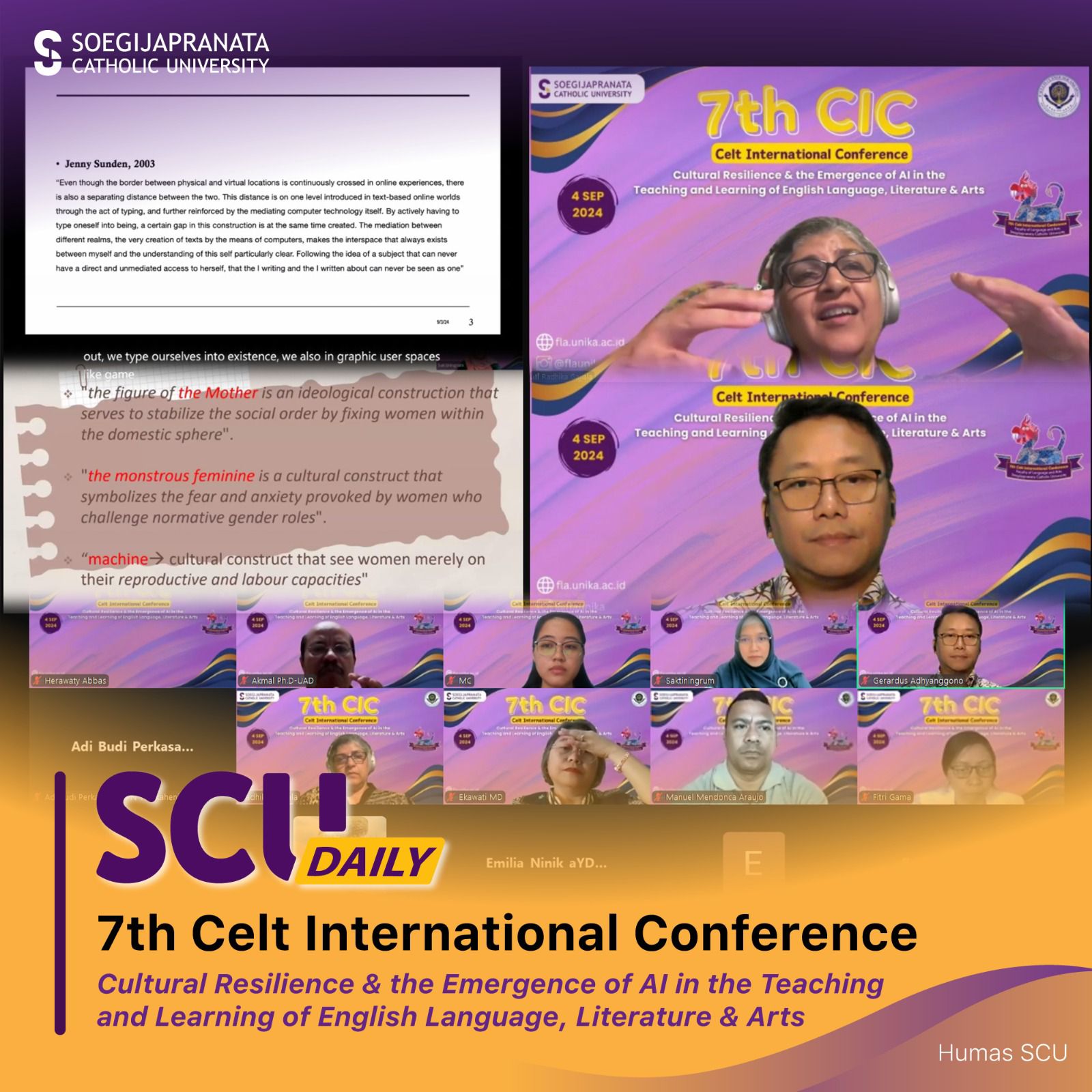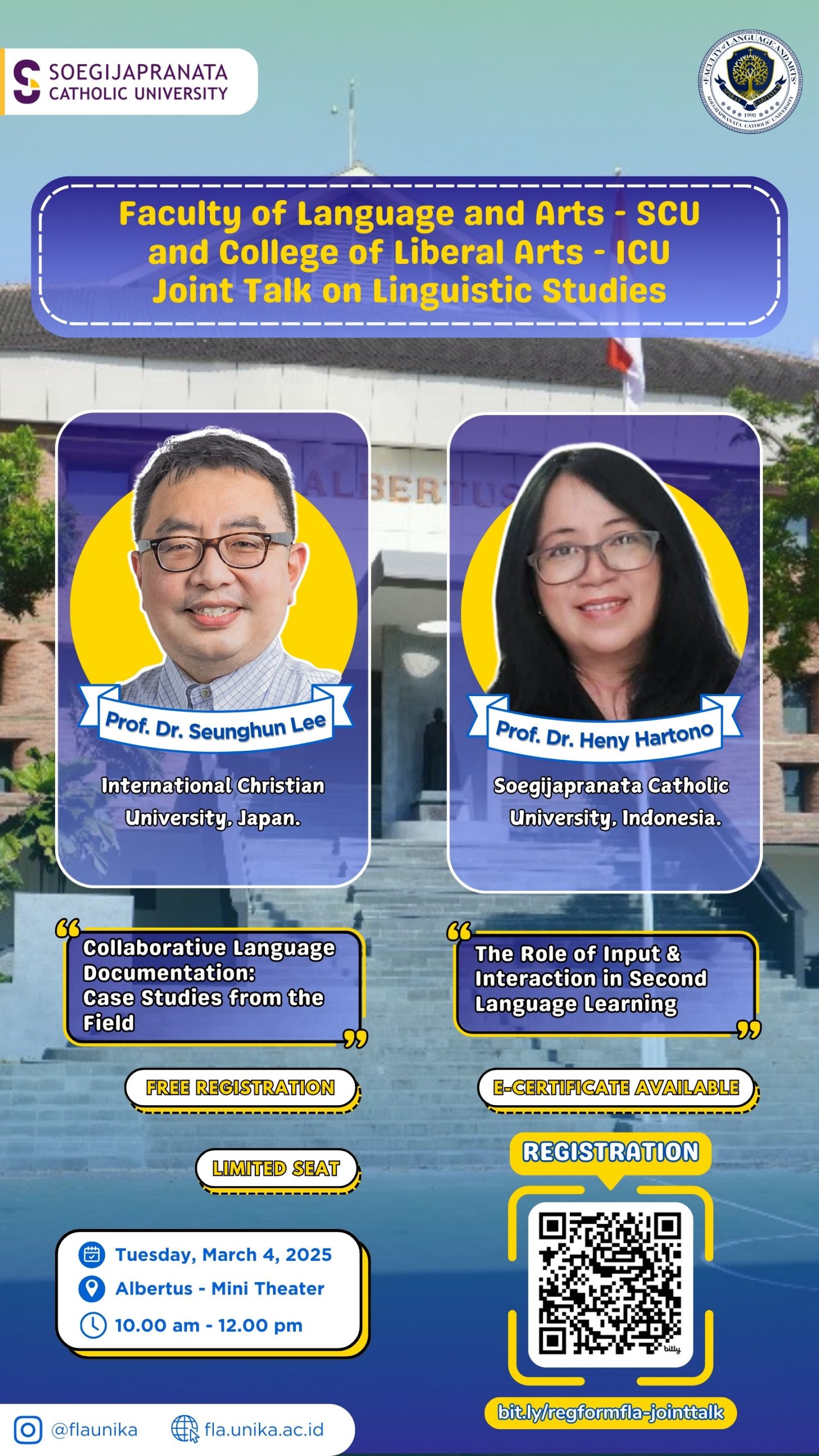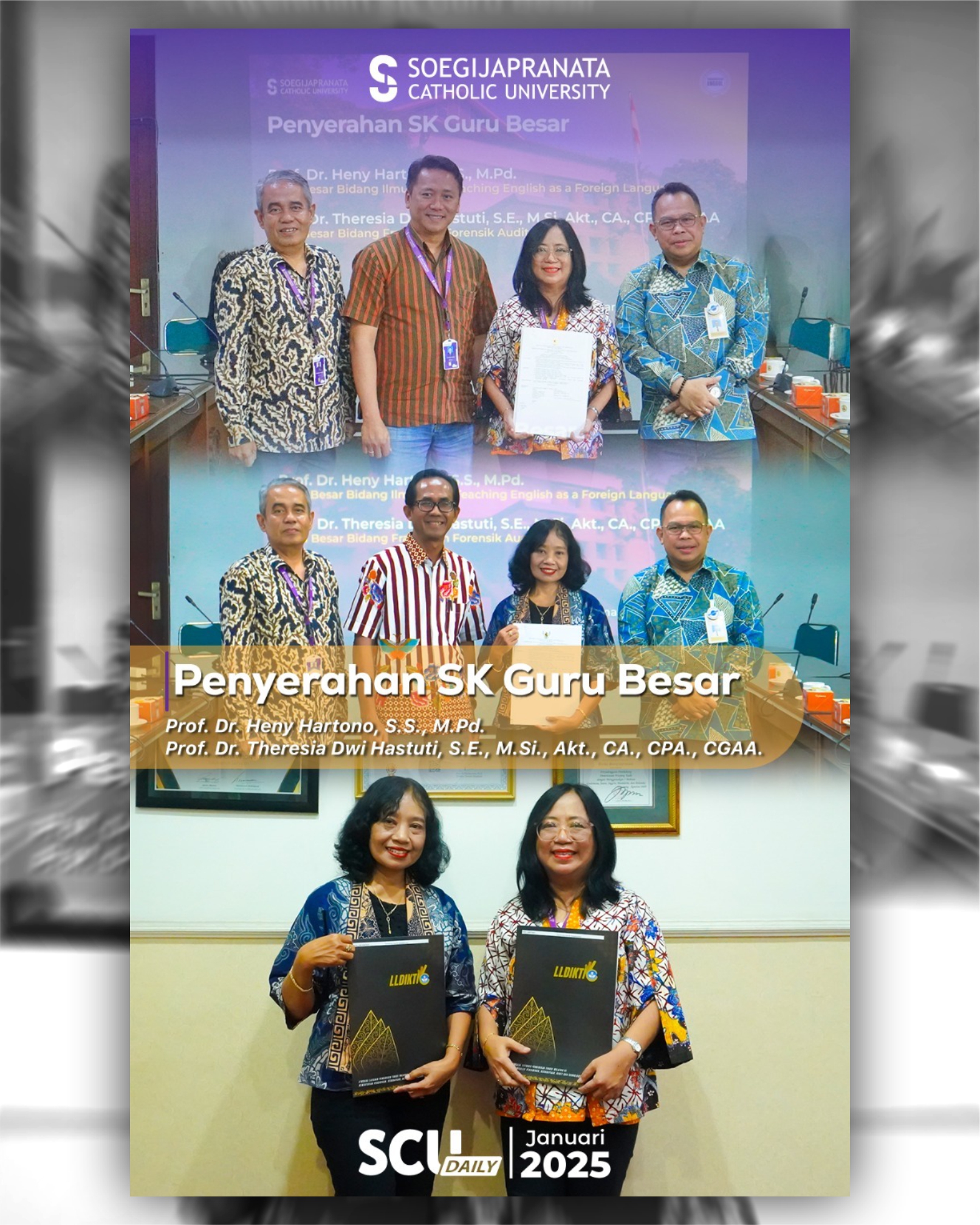7th Celt International Conference
Cultural Resilience & the Emergence of AI in the Teaching and Learning of English Language, Literature & ArtsRabu (4/9) – Bersama perguruan tinggi dari 13 provinsi dan 7 negara, Faculty of Language and Arts (FLA) SCU membahas adaptasi budaya dan kemunculan AI dalam proses pengajaran dan pembelajaran Bahasa Inggris, Sastra, dan Seni. Mereka berkumpul dalam “7th Celt International Conference” yang diselenggarakan FLA SCU secara online.
Mulai dari dampak AI pada keterampilan mendengarkan siswa EFL, strategi pembelajaran berbasis proyek, hingga pendekatan teks dalam pengajaran Bahasa Inggris untuk seni dan desain menjadi fokus bahasan sesi paralel yang dihadirkan konferensi internasional tahunan FLA SCU tersebut.





